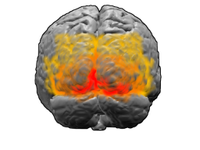
Photo from wikipedia
Purpose Patient Public Involvement (PPI) is integral within health research. This abstract presents how involving families and other stakeholders has directly guided a forthcoming research project; which intends to understand… Click to show full abstract
Purpose Patient Public Involvement (PPI) is integral within health research. This abstract presents how involving families and other stakeholders has directly guided a forthcoming research project; which intends to understand families’ and young peoples’ experiences of selective dorsal rhizotomy (SDR), including rehabilitation. Aims To demonstrate how PPI influenced protocol design for the forthcoming study exploring SDR To highlight the benefits PPI had on protocol design Method An active PPI group was convened for this project, building on previous PPI work. The group comprises 2 parents, 2 CYP’s and 2 clinicians active in the field of neurodisability, to provide direction to: Prioritise and refine the research questions and design (including recruitment) Develop relevant topic guide Develop accessible information sheets ‘Sense check’ future findings Critically evaluate research outputs that include family information The initial PPI focus group used participatory methods for equal member contributions. It covered points 1-3 with some reference for point 4. Further open PPI work at an SDR family event day provided steering for point 5. Results PPI has demonstrably influenced protocol development, which is now undergoing NHS ethical review. The project is focused upon stakeholders’ priorities with tangible outputs, whilst filling a research gap. The title represents this priority and associated methodology; ‘Supporting family decision making around Selective Dorsal Rhizotomy – A family participatory research project to co-design pre-operative counselling information’. Refined protocol qualitative interviews, now includes creative methods, to meet agreed objectives, to: Understand experiences and expectations families consider most important relating to SDR operation, physiotherapy treatment and outcomes (Phase1). Explore findings with families and clinical experts to direct child and family–centred information development, supporting their SDR journey (Phase 2). Conclusion Collaboration with young people and families was essential to driving a relevant participatory research project including meaningful outputs.
Journal Title: Archives of Disease in Childhood
Year Published: 2019
Link to full text (if available)
Share on Social Media: Sign Up to like & get
recommendations!